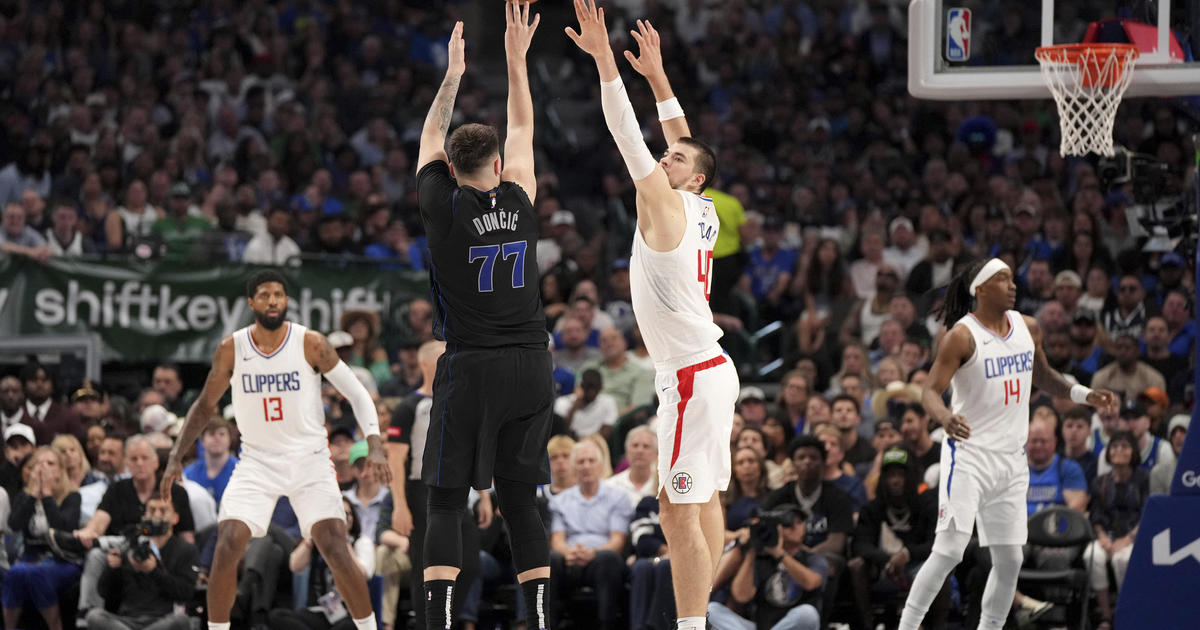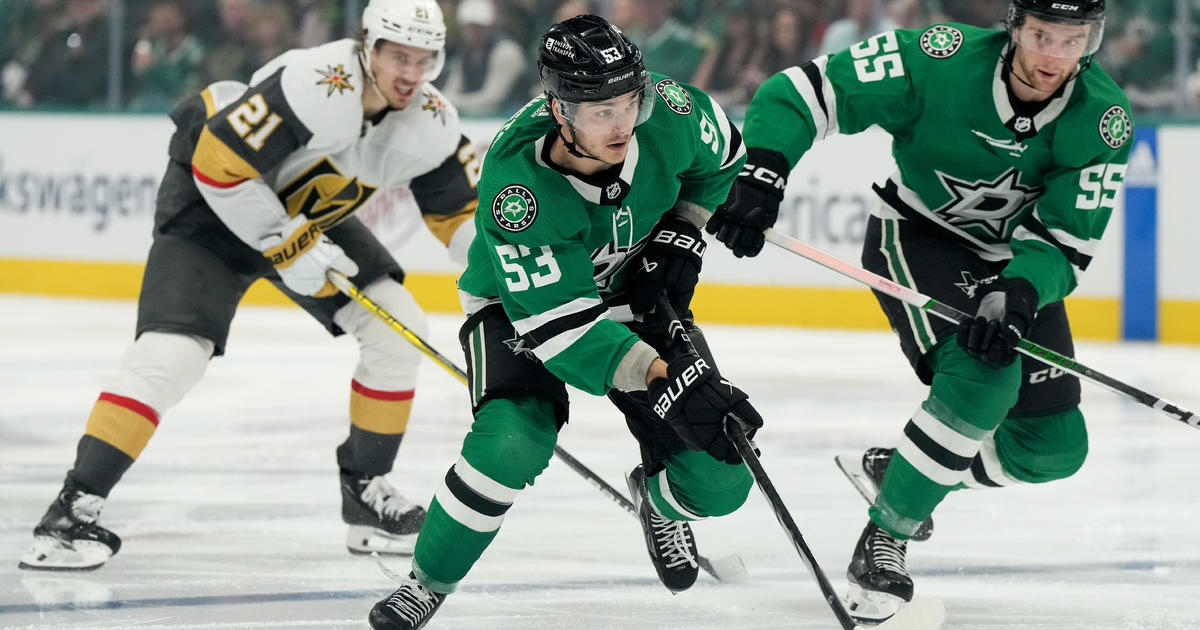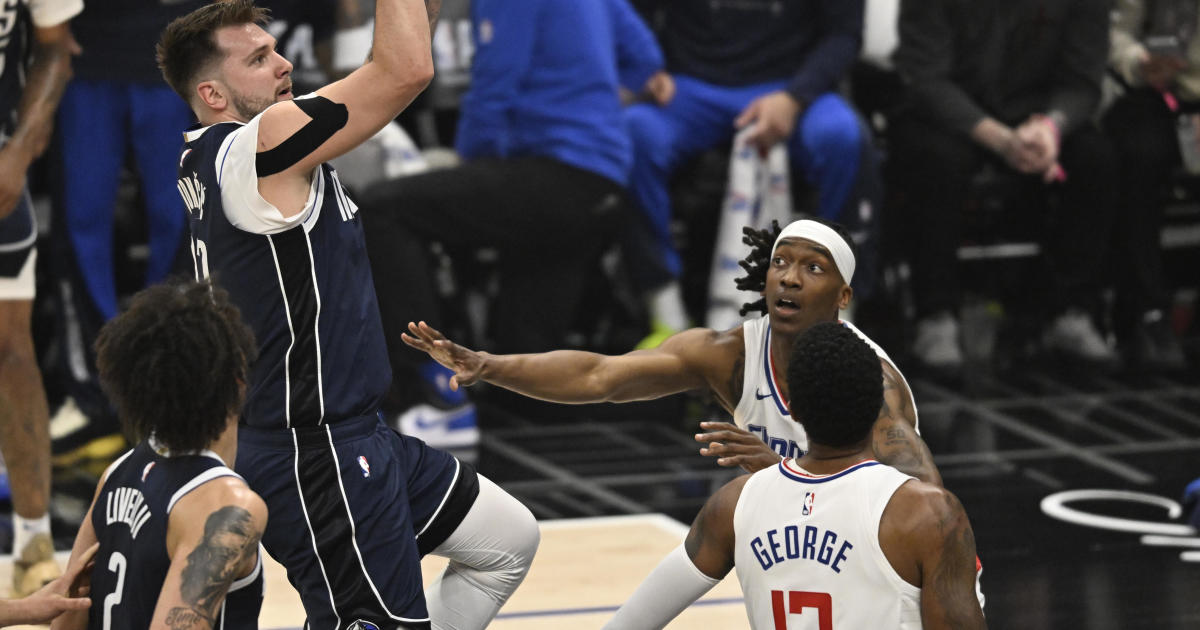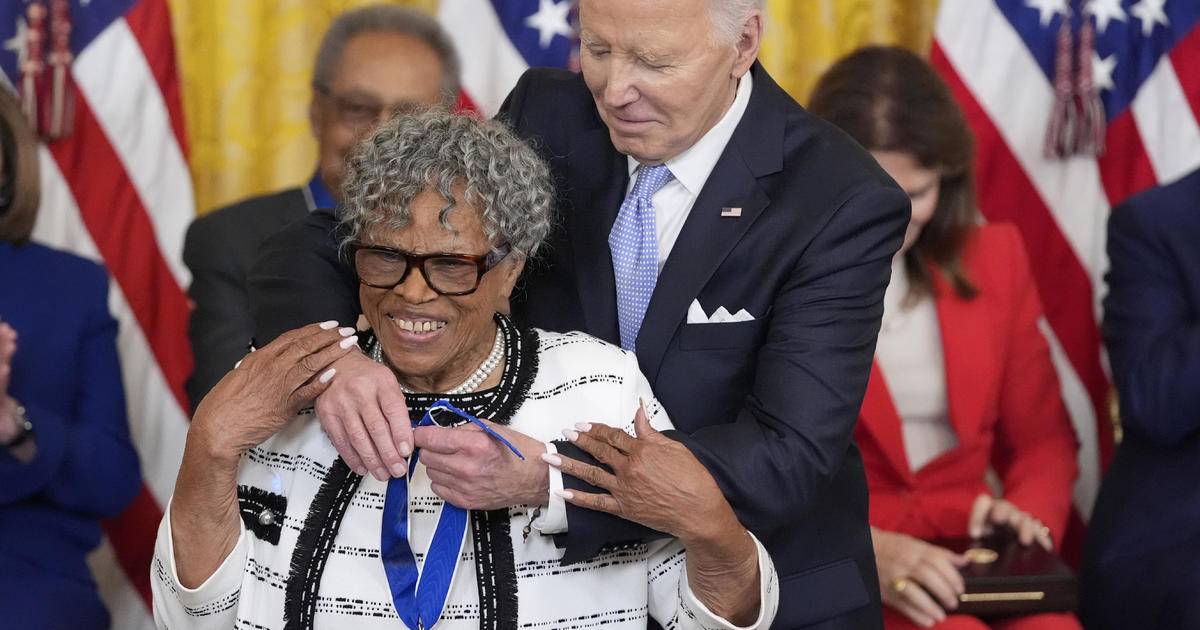Spieth Has Ground To Make Up In Quest For Grand Slam
CHARLOTTE, N.C. (AP) — Jordan Spieth only needs to win the PGA Championship to complete the career Grand Slam.
It just feels like he has to win another U.S. Open.
Quail Hollow presented a stern test in Thursday's opening round of the final major, primarily because of the firm, fast and frightening greens for which the U.S. Open is known. The result was the highest score to lead the first round of the PGA Championship in seven years, a 4-under 67 by Kevin Kisner and Thorbjorn Olesen of Denmark.
Both made birdie on the 18th hole with lengthy putts that trickled — and trickled — into the cup.
"You need to be defensive on these greens — you have to," Spieth said after his 72 left him five shots behind. "I was defensive and still had to make 4- to 5-footers for par on a couple of them."
Spieth didn't make a putt longer than 5 feet — that was for par on his second hole. He still hit the ball so well that he grabbed two birdies late in the round that enabled him to keep the damage to a minimum. If he didn't make those birdies, he worried he might have shot himself out of the tournament.
"Given it's the first round, I know I'm still in it, but I know that tomorrow's round becomes that much more important," Spieth said. "If I'm five back at the start of the day, I've got to be less than five back after Friday to really feel like I can play the way this golf course needs to be played and still be able to win."
Spieth wasn't alone in his struggles.
Rory McIlroy, a two-time winner at Quail Hollow and the betting favorite to end his three-year drought in the majors, was cruising right along until a three-hole stretch on the back nine when two poor chips and one tee shot into the water cost him three shots. He also shot 72.
Rickie Fowler had six birdies, the kind of round that would put him in the lead — except for that triple bogey on the sixth hole.
For all the talk about this 7,600-yard course favoring the big hitters, the shortest club in the bag turned out to be just as valuable.
"Any time you have a putt down grain, downhill ... we just tap it and hope it stops by the hole," Jon Rahm said after a 70.
U.S. Open champion Brooks Koepka led five players at 68. Koepka missed a half-dozen putts from 12 feet or closer, and while it looked as though he hit the ball well enough to go low at Quail Hollow, he wasn't the least bit frustrated.
"It's going to test your patience one way or another," Koepka said. "That's just a major. You've got to stay patient. You can't make doubles out here. That's the big thing. Make sure the worst score you make is a bogey and give yourself a couple of good chances on the easier holes."
That's the way Kisner approached it.
It helps that he grew up in the South and loves Bermuda greens. Given the size of Quail Hollow, Kisner drew up a simple plan. He identified four or five holes where he could make birdie, and he played for par everywhere else.
"I birdied them all today," Kisner said. "Make a lot of pars, and get to a par 5 or one of those short par 4s, I can do my wedge game and get it to 10 or 12 feet. That's my plan. Other than that, I'm playing for par."
The 18th was not one of the birdie holes he had in mind, especially with his ball nestled in the Bermuda rough 205 yards from the pin. Kisner thought the grass was thin enough behind the ball to get a 5-iron on it, and from there it was a matter of judging how much it would bounce. It ran up to the green about 20 feet away, and he used that rhythmic putting stroke to trickle it into the cup.
Olesen picked up birdies on most of the same holes, and he finished with a 30-foot birdie that also sounded like an accident.
"It was a little bit of a safe shot into the green," he said. "That's what can happen on this golf course. When you play safe into the greens, you give yourself very tricky putts, like the one I had — downhill, left-to-right. It was very, very fast. But it was just a very good roll. So it was nice to see that one drop."
Quail Hollow played to an average score of 74.7, making the PGA Championship look like the toughest test of the year in the majors. The PGA Championship typically features good scoring because it's held in August when water has to be kept on the greens to keep them from dying.
Just not this one.
(© Copyright 2017 The Associated Press. All Rights Reserved. This material may not be published, broadcast, rewritten or redistributed.)



